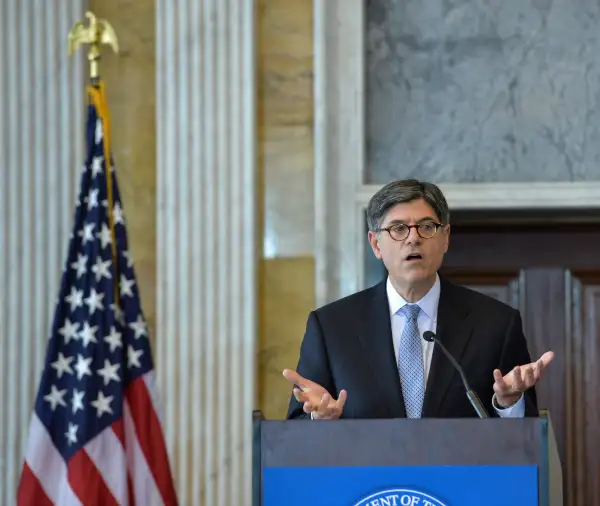Everything You Need to Know About Companies Leaving America for Taxes
Money is not a client of any investment adviser featured on this page. The information provided on this page is for educational purposes only and is not intended as investment advice. Money does not offer advisory services.

In the midst of a wave of U.S. companies including Burger King, Medtronic and AbbVie moving to foreign locales, the Treasury Department announced Monday new rules to make it harder for a corporation to save on taxes by changing its home address. For many Americans, the idea that a company can reduce what it owe to Uncle Sam just by leaving is frustrating, but also, frankly, a bit baffling. Here are some answers:
People keep saying that companies that move abroad for taxes are doing an " inversion." What's inverted about it?
The way most of these deals work is that a big American company buys a smaller foreign one. But then the org chart flips over: The little foreign company's headquarters become, at least on paper, the HQ of the new global company. The large American company is now a foreign one, and taxed according to that country's rules.
What does that change about how the company is run? Does it mean American jobs are going overseas?
A tax inversion doesn't have to change much at all about how the company is run, or where anybody works. It's really just a change of official address.
Tellingly, the U.S.-based pharma company AbbVie , which is acquiring Shire as part of an inversion move, is moving its HQ to the island of Jersey. The British Crown dependency is not really a hub for... well, much of anything. Besides really attractive tax laws.
Wait, it can't possibly be that easy--you mean you just buy a foreign company and now you don't have to pay U.S. taxes?
You're right, it's not that simple. This move only changes the taxes U.S. companies owe on their foreign profits.
The United States has what's known "worldwide" taxation, meaning that corporations owe income taxes on profits wherever they earn them. Many other countries only tax income earned in that country. As explained here by economist Kimberly Clausing in a paper for the Tax Policy Center, companies get a credit on their U.S. taxes to offset taxes paid abroad, so that they aren't liable twice on the same income. Still, U.S. corporate rates, which go up to 35%, are often higher than what's owed to other governments. So by inverting, the company can pay less tax on its foreign income.
But the company still owes taxes on whatever profits it earns in the U.S. So, for example, when Burger King acquired Canadian doughnut chain Tim Hortons and moved its HQ north, it didn't automatically get out of paying American taxes on Whoppers sold in Dayton and Miami and L.A. It did, however, ensure it won't owe the IRS anything on doughnut profits in Ontario and Quebec. And if the company expands to new countries, moving its address out of the U.S. will have given it even more tax savings.
If inverted companies are still paying U.S. taxes on the business they do here, is this really such a problem?
Ah, but wait, there's more. Enter the very clever accountants. There may be ways for a multinational company to shift its income around to lower its taxes on U.S. profits. As Stephen Shay of Harvard Law has explained, an inverted company, now that it's foreign, can make a loan to its U.S. unit. That moves money from the U.S. business to the foreign parent, while the interest payments reduce its taxable U.S. income.
The move can also help a company get out of paying taxes it otherwise would have owed on past profits. Companies generally don't have to pay taxes on foreign earnings until they bring them back to the U.S., for example to pay to shareholders in the form of dividends or stock buybacks. As a result, many global companies have built up billions in assets abroad. But after an inversion, notes Clausing, the new company can use loans between foreign affiliates in a game of "hopscotch" that effectively allows the new, foreign parent company to get its hands on the money without creating a U.S. tax liability.
Bottom line: Though inversions probably don't cost American jobs, they do reduce tax revenues.
What does the White House want to do about it?
As Fortune reports, Treasury Secretary Jacob Lew says new Treasury regulations will make inversions less attractive for companies. First, it will crackdown on the "hopscotch" move, making it harder for a company to avoid taxes when turning money from foreign subsidiaries into cash that can go shareholders. It will also strengthen an existing "80% rule," which says the American company's value must be less than 80% of that of the new, combined company. (In other words, a company can't invert by buying just any tiny little foreign firm--it has to find a merger partner that would make up 20% of the combined corporation.) Companies were getting around that rule, the Treasury says, with accounting moves to deflate the value of the U.S. company or inflate the size of the foreign one.
Shouldn't, um, Congress be handling this?
Everybody on the Hill says inversions are just a symptom of a messed up tax code. The trouble is Republicans and Democrats are sharply divided on how to fix it. The GOP wants to move away from the worldwide tax system to a "territorial" one, so taxes are owed based on where they are earned. This would end inversion by making it unnecessary--a company's foreign earnings would be free from U.S. taxes no matter where they kept their headquarters. Democrats have generally opposed this, preferring to impose new rules making it harder to use foreign subsidiaries as tax havens. Lawmakers in both parties have proposed cutting the top corporate rate.
